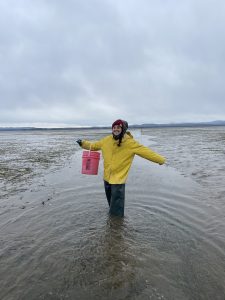Probably the most controversial political issue right now is what should really be a non-issue: vaccination. Hot-button phrases are being thrown around–parental choice, bodily autonomy, personal responsibility. I am deeply troubled by the extremely vocal and fast-growing anti-vaccine (or anti-vax) movement.
This issue affects me personally. I am mildly immunocompromised, and while I do my civic and corporeal duty and routinely get my vaccinations, they aren’t always effective. My body doesn’t reliably react to them in the way it’s supposed to (N.B. this is not a failing of the vaccines themselves, but of my immune system). Additionally, there are others who are more severely immunocompromised and are unable to get vaccinated for medical reasons–most notably, those who have struggled with leukemia, lymphoma, or other cancers. These people rely on herd immunity to keep them safe. This means that those who choose not to get vaccinated are not only putting themselves at risk for preventable diseases, but also risking the lives and health of the immunocompromised population. These people are at a higher risk of catching preventable This month’s National Geographic explores why people doubt science.
diseases, and are also more likely to suffer lasting, irreversible consequences from it.
Even though any link between autism and vaccines has beendispelledmultipletimes, anti-vaxers have been desperately clinging to it as justification to not vaccinate their children. Although misguided, this impulse is understandable. Autistic spectrum disorders are, on the whole, misunderstood, and thus, feared. If people can find a scapegoat for autism, they can hold on to the hope that they can prevent their children from developing it. But this attitude is also incredibly problematic because it devalues the lives and experiences of those with autism. The act of risking the life of one’s child to “protect” them from autism has an unspoken, and terrible meaning: “I would rather my child die than be autistic.”
.jpg)
I can’t deny that I’m worried about my own personal safety, or that the spread of ableist attitude is disconcerting. But what is most distressing to me is the willful ignorance and rejection of technological advancement. As humans, we are incredibly fortunate to control our own destiny. Rational thought is our ecological niche. We have taken hold of our natural abilities and wielded them with such strength that we have eradicated some of the most terrible diseases in our history. We did this, with our own natural talents. To deny these talents, so flagrantly and unyieldingly, at the risk of the health and lives of others of our own kind, is an act that can only be described as inhuman.
When smallpox was eradicated, it was widely considered to be the greatest achievement of humankind. Polio is wiped out in the United States, thanks to vaccination. Before the anti-vaccine trend, measles, mumps, and rubella were on their way to being extinguished as well. We are at risk of losing the gift left to us by our forebears, a gift which belongs to all of us, through a disregard for truth and the safety of others. Shouldn’t we pass this legacy of health, and triumph of the mind, on to the next generation?
Many people are afraid to disturb the seemingly fragile-yet-perfect bodies of their children with foreign substances, like medication. But, vaccines aren’t medication. They are technology that utilizes the body’s own defenses. The reluctance to inject mysterious substances into the body of one’s child is understandable. However, refusing to listen to the advice of pediatricians, immunologists, and other experts and instead placing trust in animal instinct is denying our humanity. It’s giving in to fear. But we aren’t prehistoric primates, huddled in a cave to insulate us from the world. We don’t have to do that anymore.


